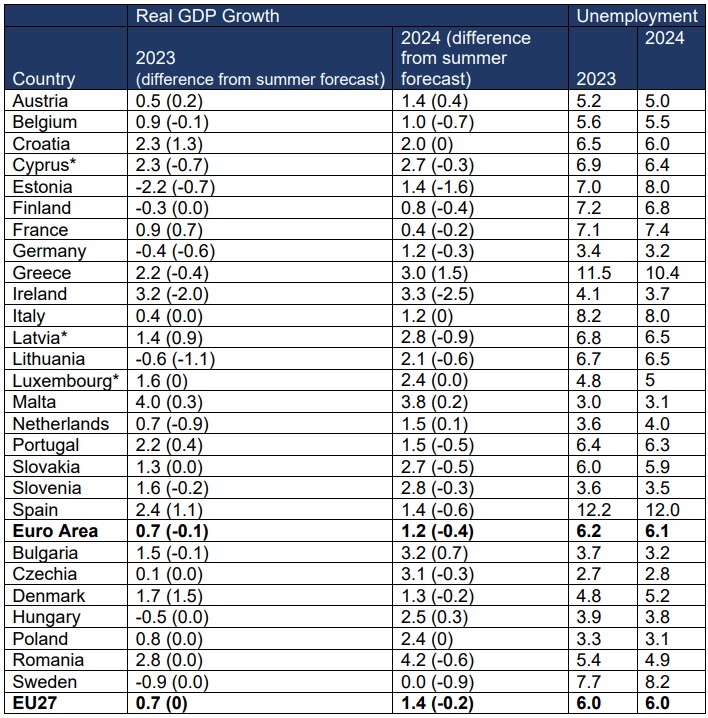Upon the release of BusinessEurope’s Economic Outlook today, and on the occasion of the Macroeconomic Dialogue with social partners and EU institutions, BusinessEurope Director General Markus J. Beyrer commented:
“The European economy continued to grow even more sluggishly in the first half of 2023 as businesses were faced with the impact of higher interest rates, a slowing global economy, and increasing long-term competitiveness challenges. In particular, higher interest rates and increased credit standards hampered much-needed investment and consumer spending.
75% of BusinessEurope member federations said that they are more pessimistic about the current business climate in industry than they were six months ago. We are lagging behind other continents because the regulatory burden remains significantly higher in Europe and energy prices are still well above their long-term average.
European institutions must deliver on their promises before the European elections, notably to reduce reporting requirements by 25%.”
Key findings from BusinessEurope’s Economic Outlook include:
- Our central forecast is for growth to slow down to 0.7% in the EU in 2023, in line with the forecast of our previous Summer Economic Outlook.
- We expect economic growth to recover moderately in 2024 with EU growth of 1.4%, as household spending recovers and international trade activity potentially picks up.
Our Economic Outlook can be read in full here.
Economic projections

Policy recommendations
- In face of continued above-target inflation, the ECB and other European central banks have rightly acted to bring inflation down, and in particular, ensure that long-term inflationary expectations do not rise.
- With wages now rising in some Member States faster than inflation and productivity growth combined, it remains crucial that social partners engage responsibly in collective bargaining on wages and help avoid a self-defeating wage-price spiral.
- It is important that the more restrictive monetary policy stance is complemented by Member States’ fiscal policy stances. Given high debt and deficit levels in some countries, agreement on new fiscal rules is urgently needed to provide a credible and respected framework to maintain public finance sustainability in the EU.
- As global competition intensifies, a comprehensive strategy aimed at enhancing the long-term competitiveness of the European economy will be key to improving Europe’s business environment.







